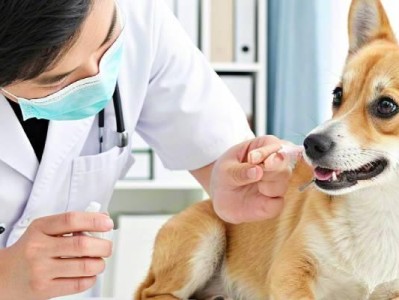How Often Should You Take Your Dog to the Vet? A Comprehensive Guide
Regular veterinary care is essential to ensure your dog’s long-term health and well-being. The frequency of vet visits depends on your dog’s age, health status, and lifestyle. Below is a breakdown of recommended guidelines:
1. Puppies (0–12 Months)
Frequency: Every 3–4 weeks until 16 weeks old.
Key Reasons:
Vaccinations: Core vaccines (e.g., distemper, parvovirus, rabies) are administered in a series during this period.
Parasite Prevention: Deworming and flea/tick control.
Health Checks: Monitor growth, detect congenital issues, and address behavioral concerns.
Nutrition & Socialization: Discuss diet and safe socialization practices.
2. Adult Dogs (1–7 Years)
Frequency: At least once a year for a routine wellness exam.
Key Reasons:
Vaccine Boosters: Maintain immunity (e.g., rabies boosters every 1–3 years).
Preventive Care: Heartworm testing, fecal exams, and parasite control.
Dental Health: Assess teeth and gums; recommend cleanings if needed.
Weight & Nutrition: Address obesity or dietary adjustments.
Early Disease Detection: Bloodwork or screenings for conditions like kidney disease or diabetes.
Exceptions: Dogs with chronic illnesses (e.g., allergies, arthritis) or high-risk lifestyles (e.g., frequent outdoor activity) may need biannual visits.
3. Senior Dogs (7+ Years)
Frequency: Every 6 months.
Key Reasons:
Age-Related Issues: Screen for arthritis, cognitive decline, cancer, or organ dysfunction.
Bloodwork & Urinalysis: Monitor kidney/liver function, thyroid levels, and glucose.
Pain Management: Address mobility issues or discomfort.
Diet Adjustments: Tailor nutrition to aging needs.
4. Emergency or Special Circumstances
Visit the vet immediately if your dog shows:
Sudden lethargy, vomiting, diarrhea, or loss of appetite.
Difficulty breathing, seizures, or trauma.
Unexplained weight loss, lumps, or behavioral changes.
Preventive Care Tips Between Visits
Keep up with flea/tick/heartworm preventives monthly.
Brush your dog’s teeth regularly.
Monitor diet, exercise, and hydration.
Track vaccinations and booster schedules.
Final Notes
Every dog is unique—work with your vet to create a personalized care plan. Early prevention and consistent checkups can add years to your dog’s life and reduce long-term healthcare costs.
Essential Puppy Vet Visits Timeline
1. First Vet Visit (6–8 Weeks Old)
Purpose: Initial health check, deworming, and vaccination plan.
Key Checks:
Physical exam (heart, lungs, eyes, ears, weight).
Fecal test for parasites.
First round of core vaccines (e.g., distemper, parvovirus).
Discuss nutrition, socialization, and parasite prevention (fleas/ticks).
2. Follow-Up Vaccinations (Every 3–4 Weeks Until 16 Weeks Old)
Core vaccines require boosters to build immunity:
10–12 Weeks: Second DHPP (distemper, hepatitis, parainfluenza, parvovirus).
14–16 Weeks: Final DHPP booster + rabies vaccine (legally required in most regions).
Optional vaccines (based on lifestyle/risk): Bordetella (kennel cough), Lyme, leptospirosis.
3. 6-Month Visit
Spay/neuter consultation (typically recommended between 6–9 months, depending on breed/size).
Microchipping (if not done earlier).
Dental check for teething issues.
4. Annual Wellness Exams
After the first year, schedule yearly checkups for vaccines, parasite control, and overall health monitoring.
When to Visit the Vet Immediately
Seek urgent care if your puppy shows:
Severe vomiting/diarrhea (especially with blood).
Lethargy or refusal to eat/drink for >24 hours.
Difficulty breathing or choking.
Swelling, hives, or allergic reactions (e.g., after vaccines).
Injury (falls, bites, fractures).
Ingestion of toxins (chocolate, xylitol, plants like lilies).
Additional Tips
Parasite Prevention: Start monthly flea/tick/heartworm preventives as early as your vet recommends.
Socialization: Wait until 1–2 weeks after final vaccines before visiting dog parks.
Behavioral Concerns: Mention anxiety, biting, or housebreaking issues during checkups—vets often provide training tips.
Preparing for Visits
Bring a stool sample for parasite testing.
Record questions about diet, behavior, or symptoms.
Keep vaccination records organized for future reference.
By following this schedule, you’ll ensure your puppy grows into a healthy, happy adult dog. Always consult your vet for personalized advice based on breed, location, and health history.
推荐本站淘宝优惠价购买喜欢的宝贝:
本文链接:https://sg.hqyman.cn/post/9713.html 非本站原创文章欢迎转载,原创文章需保留本站地址!


 微信支付宝扫一扫,打赏作者吧~
微信支付宝扫一扫,打赏作者吧~
